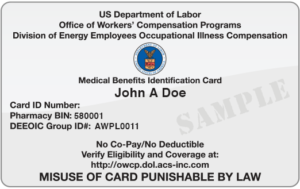Many people incorrectly view eating disorders as something that only impacts teenagers or other young people. The reality is that this is simply not the case — anyone can develop an eating disorder. It is another one of the most common mental health issues that affect senior citizens across the country.
Unfortunately, as a result of stereotypes and common misconceptions, many seniors struggle to get the professional help that they need and deserve for their eating disorder. As noted in a study published by a researcher at the Mayo Clinic’s Department of Psychiatry and Psychology, “eating disorders in the elderly are often overlooked.”
Eating Disorders in the Elderly: Understanding the Basics
There are actually many different types of eating disorders. As described by the National Association of Eating Disorders (NEDA), a patient could be diagnosed with any of the following conditions:
- Anorexia nervosa;
- Bulimia nervosa;
- Binge eating disorder;
- Pica;
- Rumination disorder; and
- Avoidant or restrictive food intake disorder (ARFID).
One of the most challenging things about diagnosing an eating disorder in a senior citizen — or in any other patient — is that the symptoms are not always easy to spot from the outside. Indeed, someone can be suffering from a severe eating disorder, and potentially even significant malnutrition, without actually losing or gaining very much weight.
An Eating Disorder May Be a Sign of an Underlying Medical Problem
An eating disorder is a medical condition in and of itself. If your loved one is dealing with an eating disorder, they need professional care and attention. Eating disorders are mental health issues that have direct physical consequences. At the same time, an eating order can also be the sign of another underlying medical problem or mental health issue — this is especially common when it comes to senior citizens.
If you believe that your elderly loved one has developed unhealthy issues related to eating or nutrition, it is crucial that you take proactive measures to protect their health and safety. That being said, eating disorders are an extremely sensitive matter. When talking about this issue, please use the utmost level of care and sensitivity. It may be advisable to speak to a mental health professional or eating disorder expert before broaching the topic.
How Meal Management and Nutrition Planning Can Help the Elderly
For many elderly people, problems with eating develop as a consequence of having problems procuring groceries, cooking food, managing meals, and dealing with other matters related to nutrition. In these cases, home health care services can provide an effective answer. An experienced home health professional can create a plan that will help your loved one manage their nutrition.
Of course, meal management help and advance nutritional planning are not always sufficient treatment options for helping an elderly person who is dealing with an eating disorder. An eating disorder can be a very serious mental health issue. Effective treatment may require intervention by both trained physicians and licensed psychologists. Every elderly person who is suffering from an eating disorder needs personalized care and attention.
Who We Serve
Do you have this card?

If you already have this card, then you are already approved to receive no-cost medical benefits! Call us to get started today.
In order to be eligible for EEOICPA/RECA benefits, an individual must have been employed at a covered Department of Energy facility, an approved atomic weapons facility, or at a permitted beryllium vendor. An individual must also have one of the covered conditions as a result of exposure to radiation, beryllium, or silica while employed at an accepted facility. In addition, uranium miners, millers, and ore transporters are eligible for benefits if they develop an illness as a result of exposure to toxic substances (such as radiation, chemicals, solvents, acids, and metals) and worked at a facility covered under RECA. Eligibility requirements vary by location and condition.